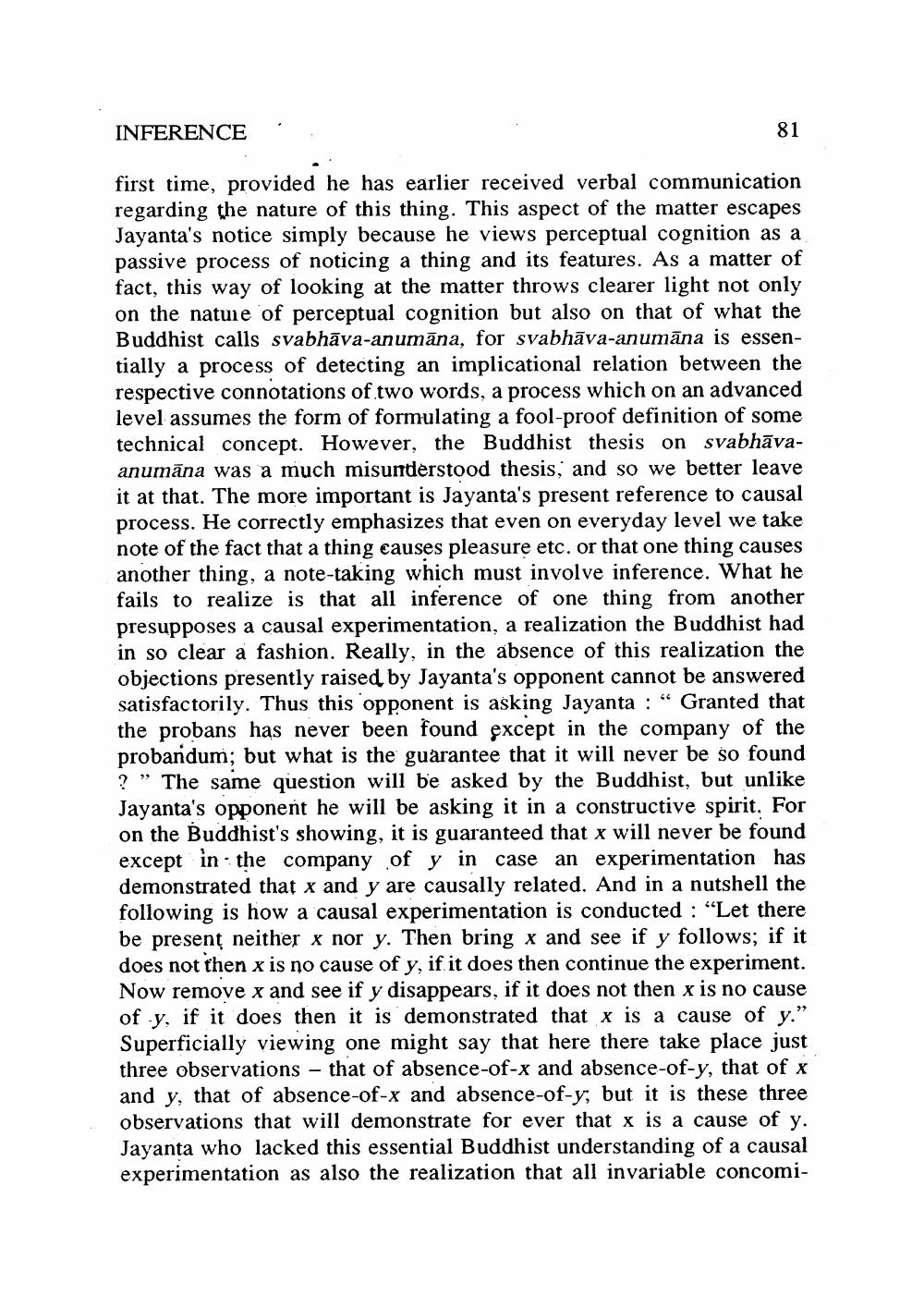________________
INFERENCE
81
first time, provided he has earlier received verbal communication regarding the nature of this thing. This aspect of the matter escapes Jayanta's notice simply because he views perceptual cognition as a passive process of noticing a thing and its features. As a matter of fact, this way of looking at the matter throws clearer light not only on the nature of perceptual cognition but also on that of what the Buddhist calls svabhāva-anumāna, for svabhāva-anumāna is essentially a process of detecting an implicational relation between the respective connotations of two words, a process which on an advanced level assumes the form of formulating a fool-proof definition of some technical concept. However, the Buddhist thesis on svabhāvaanumāna was a much misunderstood thesis, and so we better leave it at that. The more important is Jayanta's present reference to causal process. He correctly emphasizes that even on everyday level we take note of the fact that a thing causes pleasure etc. or that one thing causes another thing, a note-taking which must involve inference. What he fails to realize is that all inference of one thing from another presupposes a causal experimentation, a realization the Buddhist had in so clear a fashion. Really, in the absence of this realization the objections presently raised by Jayanta's opponent cannot be answered satisfactorily. Thus this opponent is asking Jayanta : " Granted that the probans has never been found except in the company of the probandum; but what is the guarantee that it will never be so found ? ” The same question will be asked by the Buddhist, but unlike Jayanta's opponent he will be asking it in a constructive spirit. For on the Buddhist's showing, it is guaranteed that x will never be found except in the company of y in case an experimentation has demonstrated that x and y are causally related. And in a nutshell the following is how a causal experimentation is conducted : “Let there be present neither x nor y. Then bring x and see if y follows; if it does not then x is no cause of y, if it does then continue the experiment. Now remove x and see if y disappears, if it does not then x is no cause of .y, if it does then it is demonstrated that x is a cause of y.” Superficially viewing one might say that here there take place just three observations - that of absence-of-x and absence-of-y, that of x and y, that of absence-of-x and absence-of-y; but it is these three observations that will demonstrate for ever that x is a cause of y. Jayanta who lacked this essential Buddhist understanding of a causal experimentation as also the realization that all invariable concomi




